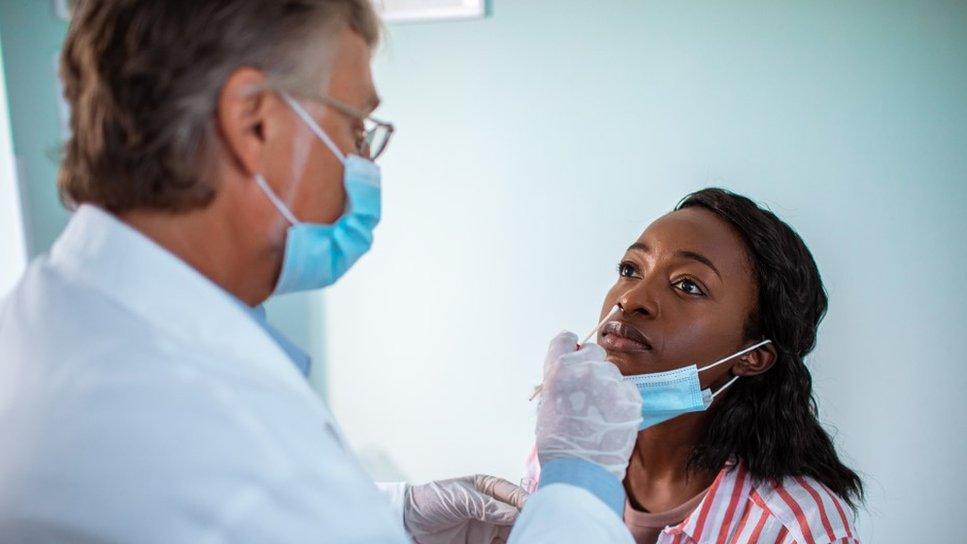Covid-19: One-in-10 health trust staff absent with Covid, says union
- Published
- comments
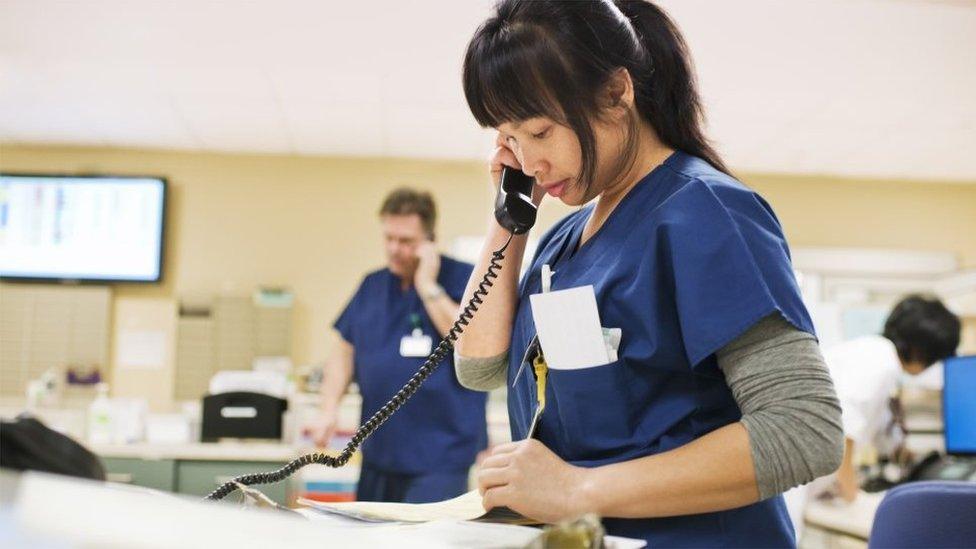
Absences due to Covid-19 is affecting about one in 10 staff across all health trusts, the health union Unison has said.
It comes as the Omicron variant continues to spread with transmission rates at an "extraordinary level".
Some businesses have faced closures with staff absences, while schools have been advised to follow pre-Christmas mitigations.
Stormont ministers met on Thursday to discuss the Covid surge.
They decided that further Covid restrictions were not necessary at this time.
Northern Ireland reported 12% of its total number of positive Covid-19 cases since the start of the pandemic in just the last seven days.
Statistics on Wednesday revealed the extent of the problem, with thousands of health sector workers off sick or isolating.
Health Minister Robin Swann told Stormont's health committee on Thursday that there had been 5,261 new appointments across health and social care following a workforce appeal last year.
Mr Swann said those include appointments in health and social care, admin and support staff.
The minister said that another appeal to recruit staff specifically for elective care services brought in 940 applications.
He also told the committee that an appeal for vaccinators in December has generated 2,391 expressions of interest and 1,100 formal applications.

What has changed with self-isolation?
The Department of Health's decision to change Covid testing rules follows the same move announced for England earlier on Wednesday.
The current isolation period lasts seven days, with a negative lateral flow test needed on day six and seven.
The Department of Health said:
The removal of confirmatory PCR testing was a temporary measure in response to the very high prevalence of Covid in Northern Ireland
A positive lateral flow test was a "positive indicator of current Covid-19 infection" and should be reported on the gov.uk website, external so close contacts can be informed through contact tracing
After receiving a positive result, people should continue to isolate until they get two negative lateral flow tests taken 24 hours apart, or they have completed 10 full days of isolation - whichever is earlier
People who have symptoms of Covid but have received a negative lateral flow test are encouraged to book a PCR test.
Fully-vaccinated people identified as close contacts are now advised to take daily lateral flow tests for 10 days following their exposure.
But those tests have also been hard to come by for many because of the demand caused by rising Omicron cases.

'Staff shortage is biggest crisis'
Unison representative James Large said the pandemic has highlighted the need for long-term strategic thinking.
He said the pandemic has shone "a light on a service that hasn't been run properly for a number of years".
"There has been no workforce planning for a number of years," he added.
He called for "proper workforce planning, a decent wage for staff working in the service and recruiting and filling of posts on a permanent basis".
On Tuesday, the Belfast Trust - Northern Ireland's biggest health trust - had about 14% of its total workforce absent, partly as a result of Covid.
The Northern Ireland Ambulance Service (NIAS) said about a quarter of its staff were currently unable to work due to Covid-related absences and other reasons.
Chief executive Michael Bloomfield said the pressures were the worst they had been during the pandemic.
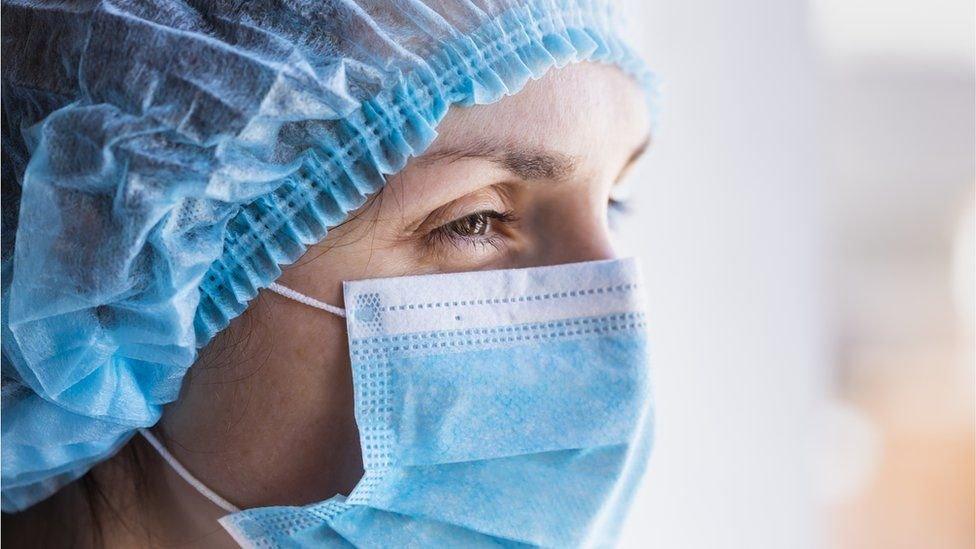
Unison says one-in-10health trust staff are affect by absenteeism due to Covid-19 in Northern Ireland
Despite seven of Northern Ireland's hospitals being over capacity on Wednesday, the chairman of the British Medical Association in Norther Ireland said Omicron did not seem to be as bad as the Delta variant in terms of admissions to hospital.
"The biggest crisis we will have over the coming months is staff shortages," said Dr Tom Black.
Health trusts have also issued a reminder for people to leave hospitals as soon as they are fit for discharge, due to the "extreme pressures" being faced.
GP surgeries close to closure
Frances O'Hagan, the deputy chair of the British Medical Association (BMA) in Northern Ireland, said it would not be surprising to see GP surgeries closing their doors.
"Everyday we're hearing about members of staff, in particular GP's, who are working from home whilst they actually have Covid," she said.
"There's no other option to keep the doors open.
"This is definitely the worst we've been at."
The director of the Royal College of Nursing in Northern Ireland, Rita Devlin, said services have been kept afloat thus far "by the good grace of the people who work in the sector".
"But that good grace is not endless and people's ability and resilience to keep going is being really badly impacted," she added.
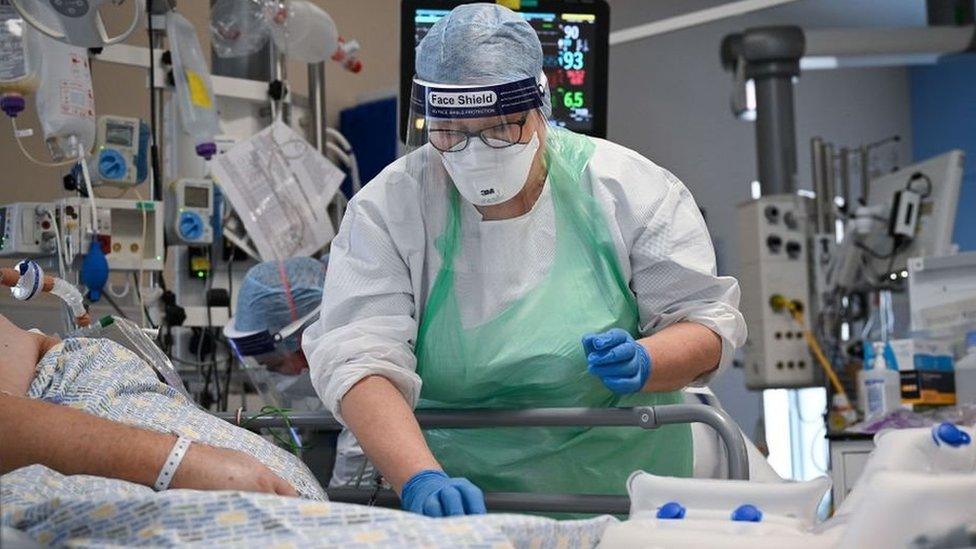
Staff shortages are placing a major burden on surgical teams
Mark Taylor, the Director of the Royal College of Surgeons in Northern Ireland, said staff shortages are placing a major burden on surgical teams.
"The theatre teams have been hit hard and certainly there is a reduction in surgical activity," he added.
"We are still trying to do as much surgery as possible.
"It's back to the stark reality of the pandemic in its most simple state - the more pressure on a fragile system from whatever, the difficulty arises then in trying to maintain time-dependent surgery.
"A balance of risk"
In a bid to ease demand for hospital beds, Health Trusts across Northern Ireland are urging patients and their carers to leave acute hospitals as soon as they're deemed fit for discharge.
The director of operations at the Northern Trust, Wendy Magowan, said about 500 of their staff are isolating as a close contact or as a positive Covid case.
"It's significant and it's the same across all health and social care services," she added.
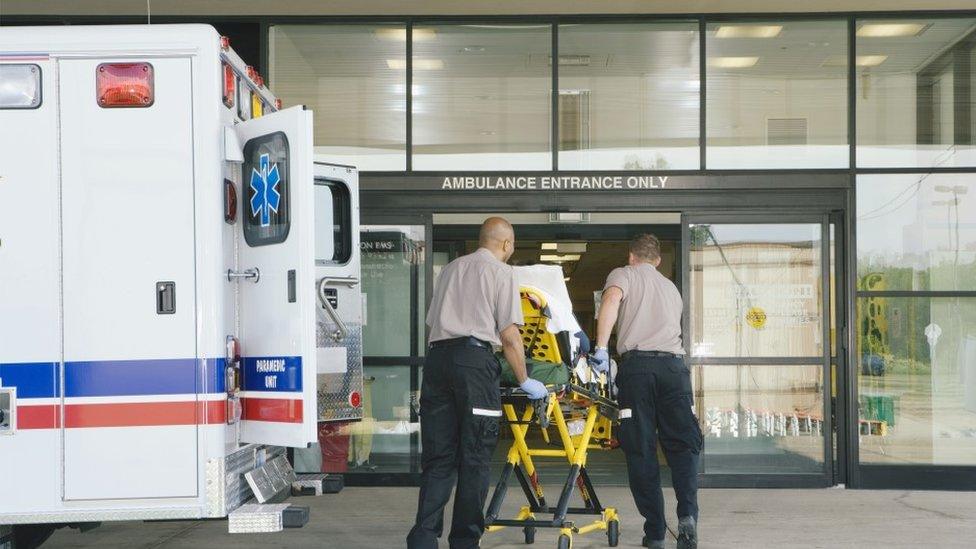
As of Tuesday, 452 people are delayed in hospitals across Northern Ireland
Speaking on Good Morning Ulster, Wendy Magowan, said there are 452 people delayed in hospitals across Northern Ireland as of Tuesday.
Within that number, 240 people are awaiting admission, and 154 have been delayed for more than 48 hours.
One of major "pinch points" in people fit for discharge needing domiciliary care.
"It's a balance of risk between the acutely unwell patients and the patients who have completed their hospital journey but are not maybe ready to go home without a level of support," she said.
"We do need to ask people who may be delayed at the end of their medical journey to move on because there are people at the front door or delayed at the back of ambulances who need to get into hospital."

OMICRON SURGE: Variant spreading at exceptional pace
SELF-ISOLATION: You test positive - what next?
COVID PASSPORTS: How to get one and how to use one

Related topics
- Published31 December 2021
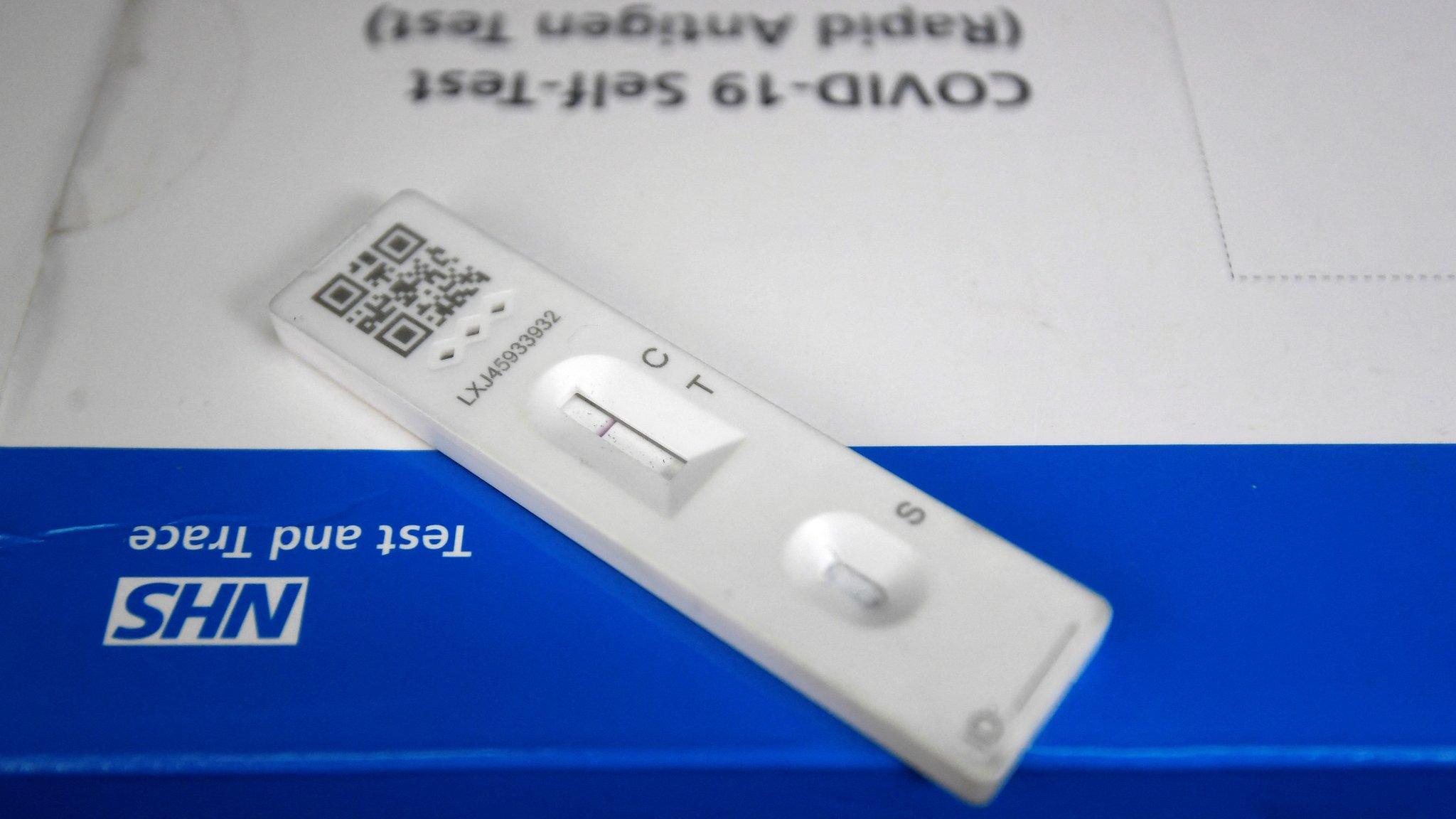
- Published5 January 2022
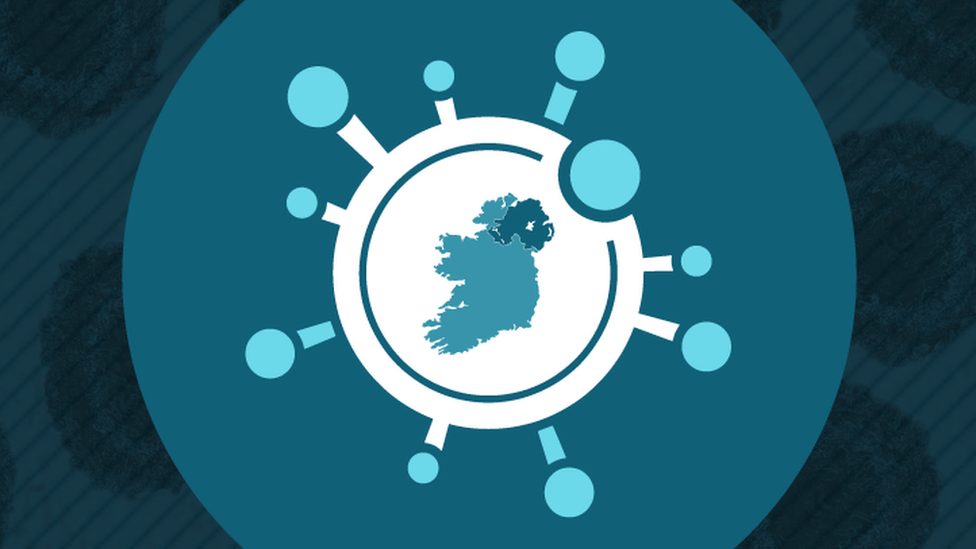
- Published4 January 2022
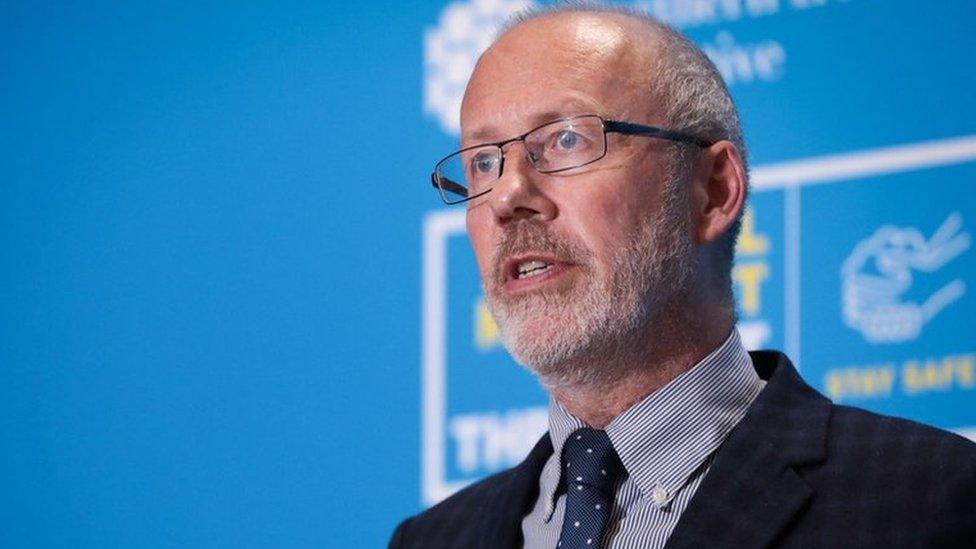
- Published4 January 2022

- Published2 January 2022
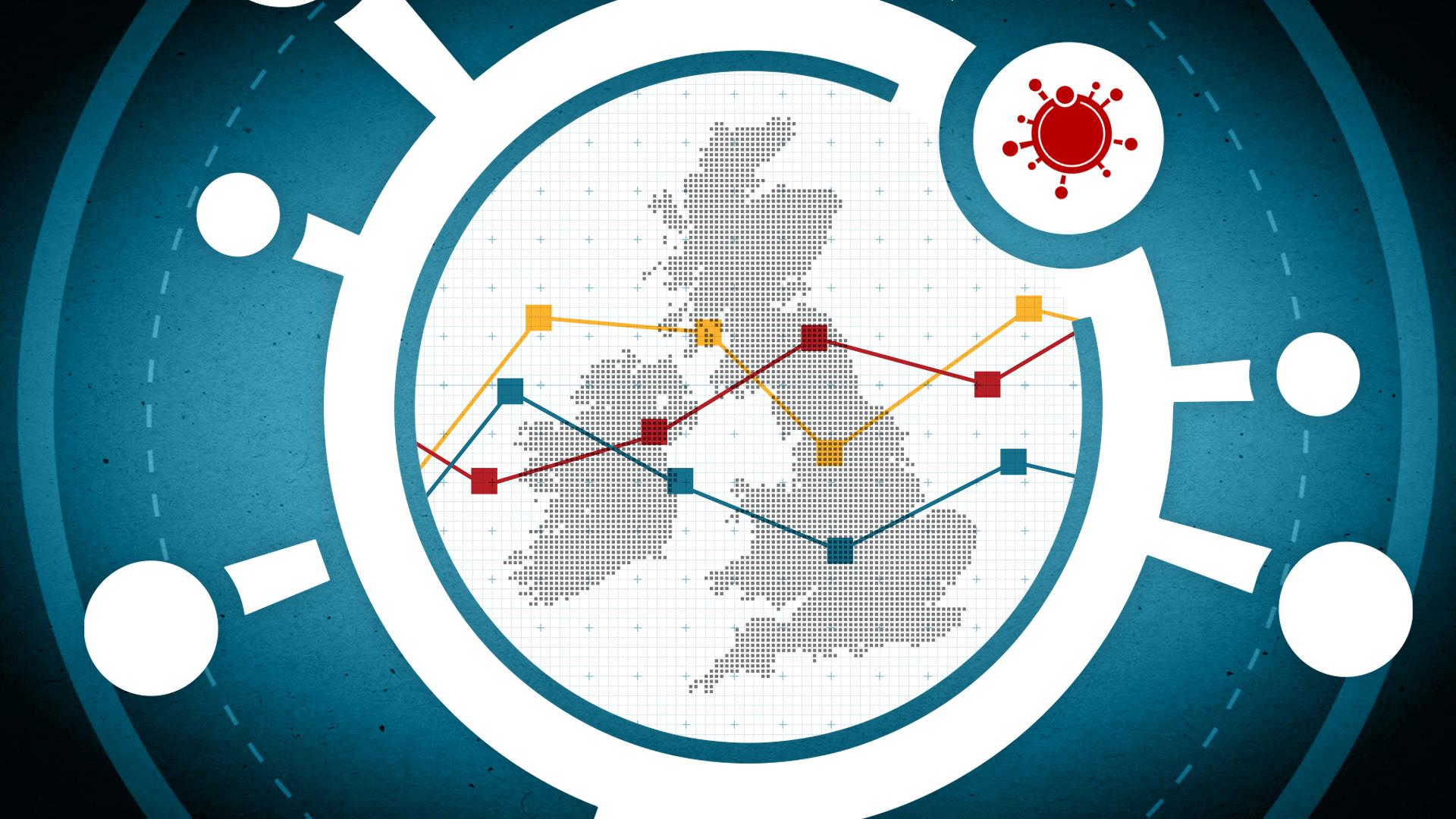
- Published5 January 2022
